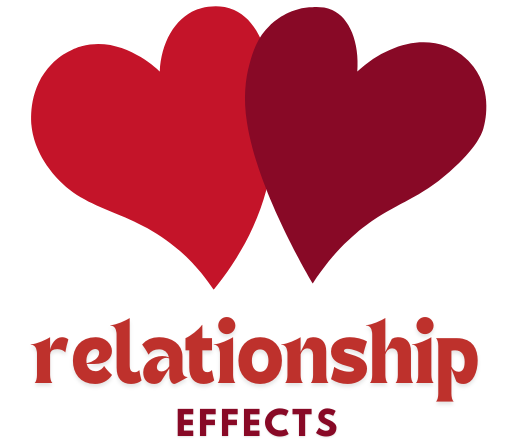Breakups are rarely straightforward. They come with a swirl of emotions that can leave us feeling confused, hurt, and, often, filled with an intense hatred toward our ex. If you’re grappling with these feelings, know that you’re not alone. Understanding why this hatred surfaces is the first step toward healing and finding peace.

The Immediate Shock and Pain
The end of a relationship is a significant emotional blow. When someone who was a central part of your life is suddenly gone, it leaves a void. This absence can amplify feelings of loss, betrayal, and abandonment. Hatred often becomes a defense mechanism—a way to cope with the intense pain of separation. Instead of processing these difficult emotions, your mind directs them outward, making your ex the target of your anger and resentment.
Broken Trust and Betrayal
Trust is the bedrock of any relationship. When it’s broken, the fallout can be devastating. Whether your breakup was due to infidelity, lies, or simply unmet expectations, the betrayal of trust can ignite a powerful sense of hatred. You feel let down by someone who was supposed to care for and protect your emotional well-being. This betrayal not only damages your perception of your ex but also shakes your confidence in future relationships.
Unresolved Issues and Miscommunication
Often, relationships end with unresolved issues and lingering questions. Why did things fall apart? What went wrong? This lack of closure can fuel anger and hatred. When you don’t have clear answers or an opportunity to express your feelings fully, those emotions can fester. Miscommunication or the absence of communication leaves you filling in the gaps, often with negative assumptions that exacerbate your resentment.
The Grieving Process
Hatred towards an ex can be part of the grieving process. Just like mourning a loved one, ending a relationship involves grieving the future you imagined together. Denial, anger, bargaining, depression, and acceptance are all stages of grief that apply to breakups. Hatred usually falls under the anger stage, a natural and necessary part of moving through your pain.
Self-Reflection and Blame
After a breakup, it’s common to reflect on the relationship and question your own actions and decisions. This self-reflection can sometimes turn into self-blame. In an attempt to protect your self-esteem, you might redirect this blame outward, finding faults in your ex to justify the end of the relationship. This redirection helps to soothe your ego but also intensifies feelings of hatred.
Societal Expectations and Pressure
Society often imposes certain expectations on how relationships should progress and end. The pressure to move on quickly, to show you’re unaffected, or to “win” the breakup can contribute to feelings of hatred. Comparing your situation to others or feeling judged by friends and family can add another layer of resentment, not only towards your ex but also towards yourself for not meeting these expectations.
Coping Mechanisms
Hatred can sometimes serve as a coping mechanism, a way to maintain emotional distance. If you convince yourself that your ex is a terrible person, it might make it easier to move on. This emotional barrier can protect you from the pain of longing or regret. However, it’s a temporary fix that prevents true healing.
Fear of the Unknown
Breakups bring about significant changes and uncertainties. The fear of facing life without your ex, of being single again, and of the unknown future can manifest as hatred. This fear-driven hatred distracts you from dealing with your own anxieties and uncertainties, providing a false sense of control over the situation.
Moving Towards Healing
Understanding the roots of your hatred is crucial in finding a path toward healing. Here are some steps that can help:
- Acknowledge Your Emotions: Allow yourself to feel anger, sadness, and even hatred. These emotions are valid and part of the healing process.
- Seek Closure: If possible, have an honest conversation with your ex to address unresolved issues. If not, write down your feelings in a letter you never send. This can provide a sense of closure.
- Focus on Self-Care: Engage in activities that bring you joy and peace. Exercise, hobbies, and spending time with loved ones can help shift your focus from negative emotions.
- Talk to Someone: Therapy or counseling can provide a safe space to explore your feelings and develop healthier coping mechanisms.
- Practice Forgiveness: This doesn’t mean excusing your ex’s behavior but releasing the hold that anger has on you. Forgiveness is for your peace of mind, not theirs.
How to Move Forward
Feeling hatred towards an ex after a breakup is a common, albeit painful, part of the healing journey. It’s rooted in the immediate shock and pain, broken trust, unresolved issues, and the natural grieving process. By acknowledging these feelings and taking steps towards self-care and understanding, you can begin to heal and eventually find peace. Remember, the goal isn’t to erase the past but to learn from it and move forward with greater resilience and self-awareness.
Ally is editor at Relationship Effects and a keen writer on the topics of love and relationships. When she's not writing about the highs and lows of being in love, you're likely to find her catching up on the latest season of Bridgerton (again), reading, or hanging with her two ragdoll cats.
